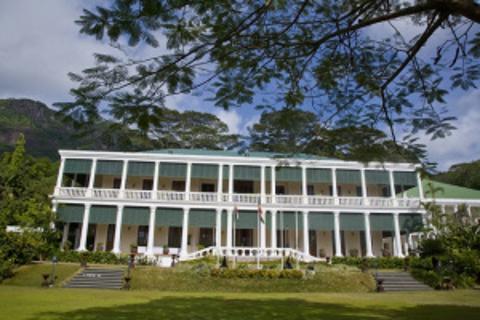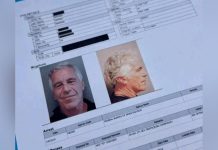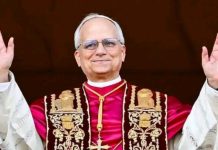Africa-Press – Seychelles. (Seychelles News Agency) – Since Seychelles became independent from Britain, the island nation has seen five presidents at the helm of the executive branch of the island nation, with the most recent election in October bringing Wavel Ramkalawan into power.
SNA brings you short biographies of the nation’s five presidents.
James Mancham
Mancham was the first president of Seychelles, a group of 115 islands in the western Indian Ocean, and held office from 1976 to 1977. His Seychelles Democratic Party (SDP) created in 1964 won the popular vote after Seychelles got its independence on June 29, 1976.
His reign as president was short-lived after he was overthrown by a coup d’état staged by late president Albert Rene in June 1977. Mancham then went into exile in London for 15 years before returning to Seychelles.
During his career and retirement into politics, the founding president of Seychelles received many awards and made international headlines for being a promoter of peace. In 2017, Mancham launched the International Centre for Peace Studies and Diplomacy, a non-profit organisation managed by the International Board of Trustees in partnership with the Seychelles government and University of Seychelles.
Born on August, 5 in 1939 and died January 8, 2017.
France Albert Rene
Rene is Seychelles’ longest-serving president. He led the island nation for more than a quarter century under a one-party rule. He held office from 1977 to 2004, when he retired. He took power following a coup d’état that ousted James Mancham.
After Rene completed his studies to become a lawyer, he returned to Seychelles in 1957 and was disappointed with the social policies of British colonialism, which he felt created gross injustice among the population.
He formed the Seychelles People’s United Party (SPUP) in 1964 to participate in the political development of his country and to represent the aspirations of many inhabitants whose living conditions were deplorable.
He is remembered as a powerful leader with a strong vision for Seychelles that included free education and healthcare, but also for leading a government responsible for unsolved deaths and disappearances of its citizens.
Born November 16, 1935, he passed away on February 27, 2019.
James Michel
Michel became the third president of Seychelles when he succeeded Rene in 2004. After he completed his secondary education in Victoria in 1959, Michel attended the teacher training college from 1960 to 1961. He taught for two years before joining the telecommunications company Cable & Wireless, the trade union movement and the hotel industry.
In 1978, he became deputy secretary general of the Seychelles People’s Progressive Front and secretary-general in 1994 until June 2009. He was elected president in 2009 when SPPF became Parti Lepep (People’s Party). He won elections in May 2011 and December 2015. Michel resigned in October 2016 less than a year in his five-year mandate.
One of his greatest achievements was the revitalisation and reform of the Seychelles’ economy when he embarked on an economic reform programme with the International Monetary Fund (IMF) in 2008.
Michel has propelled Seychelles on the international scene as an ardent advocate of the cause of small islands developing states and the preservation of the environment and the concept of the Blue Economy. He set up a Blue Economy Department to promote the concept and spearheaded a Blue Bonds initiative, to raise capital for the sustainable management of both ocean resources and fisheries.
One of the most controversial issues in his presidency was an agreement to have an Indian military base on Assumption island.
Danny Faure
He took over power as the fourth president of Seychelles when Michel resigned in 2016.
With an opposition majority in the National Assembly, Faure had to navigate through a difficult political climate whereby he had to work and cohabitate with the opposition throughout his mandate.
Faure completed his primary and secondary education in Seychelles. He then pursued studies at degree level in Cuba and graduated with a Bachelor in Political Science in 1985.
During his presidency, Faure received several international awards including the National Geographic Society’s prestigious ‘Planetary and Leadership Award’ at a National Geographic Awards Ceremony, at the George Washington University, in Washington DC.
Faure is now being seen by the world as a president who led a peaceful transition of the transfer of power after he lost the October presidential and legislative elections.
Wavel Ramkalawan
Ramkalawan was sworn in as the country’s fifth president on October 26. His victory in the recent presidential and legislative election put an opposition leader in the top seat of power for the first time in 43 years. It also represents a sea change in political power for the island nation, with the former opposition, Linyon Demokratik Seselwa (LDS), now in full control of the government of Seychelles.
Before becoming the president, Ramkalawan was a politician and Anglican priest in Seychelles. Ramkalawan was an opposition member of parliament from 1993 to 2011 and 2016 to 2020.
When he was sworn in, Ramkalawan called for national unity, a nation where everyone is equal and no one is left behind. He has also reiterated his call for a drug-free Seychelles — a scourge which he said has destroyed the youths and their families and has also stressed on maintaining the rule of law.






